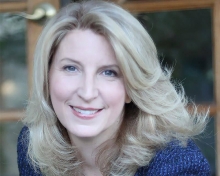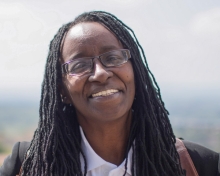Are you ready for a new year — and a new decade? As we enter 2020, the news industry will undoubtedly continue to experience change. How will you navigate what lies ahead? We turned to current and former ICFJ Knight Fellows to ask their advice for the coming year.

Janine Warner, ICFJ Knight Fellow in Latin America and executive director of SembraMedia
Don’t chase the latest trends just because everyone else does.
Every year there is some hot new trend that it seems “everyone is talking about.” After extensive research into what works (and what doesn’t) for hundreds of digital media companies, I’m increasingly convinced that trying the “hot new thing” is often a mistake.
As you consider how best to invest your time next year, look beyond the latest fads and consider if you’d be better off refining and improving something you're already doing. If you do decide to try a new technology, business model or best practice, ask yourself these three questions first: Is this right for my audience? Does our team have the experience (and time) we need to succeed? And, does this new idea fit our core mission, build on the other things we’re doing or add significant new value? If the answer to all three is yes, then go for it!

Pedro Burgos, journalism program coordinator at Insper, advisor to Vortex Media and former ICFJ Knight Fellow
Understand the information needs of your community before thinking about new “journalism products.”
To go to a journalism conference is to hear a seamlessly infinite variation of the question, “How do we make more people pay for our product?” The answers will involve strategies around subscriber attraction and retention — or members, the new trend.
However, one question has to come before that one: “Why should someone pay for what we do?” My advice is to ask this question harder — and more frequently — to the people that engage with what you’re already doing, to those interested in your beat or to a community that can make its life better because of your service.
In many places today, little attention is devoted to understanding exactly what real-world problems or needs our “journalism products” (podcasts, newsletters, websites or even stories) are trying to solve. Before releasing a new one, try to approach your community with an open mind so you can better understand what their information needs are. You may be surprised, and you’ll have better ideas for a more useful and valuable product to offer.

Catherine Gicheru, ICFJ Knight Fellow in Kenya working with Code for Kenya
To build trust with their audiences, journalists need to be more transparent about their work.
The disruptive application of technologies has led to an ever-increasing volume and velocity of content, including mis- and disinformation that has contributed to the audience’s diminished trust in media. To stem this distrust, journalists have to improve the relationship they have with their audiences. They can do this by better explaining the context and history of the events they cover, and by being more transparent with their audience.
Journalists have to educate their audiences on how they work, how decisions are made, how to differentiate between fact and opinion, and the impact that advertising (corporate or government) and political interests have — or do not have — on news coverage. This will help stem the armies of paid trolls or bots who discredit and tarnish the names of news organizations and individual journalists.

James Breiner, digital media consultant and former ICFJ Knight Fellow
The winning business strategy builds on relationships with your audience rather than scale.
The losing strategy that seeks mass audiences and mass advertising as measured by unique users and page views has led many media to chase clicks with ever-more sensationalistic content about celebrities, sports figures, imprudent politicians and sex scandals. Those sites will continue to lose revenue and audience to the search and social platforms, as well as credibility and trustworthiness.
If you build a relationship with your audience, they are more likely to become loyal, to trust your work, to recommend your work and to be willing to pay to support your mission. The total audience will be smaller, and the percentage willing to pay for your content might be in the single digits, but this public-service, user-focused strategy builds trust and credibility for the long term. Examples are Mediapart in France, eldiario.es in Spain, Animal Politico in Mexico and The Texas Tribune in the U.S.
Here’s a tip: build your email subscriber list. This way you own a relationship with your users, and you can avoid using the search and social platforms as an intermediary. Tailor newsletters for these email subscribers according to their interests and tastes. Other examples of relationship tactics include crowdsourced stories, face-to-face and online events, reader polls, crowdfunding and WhatsApp and Telegram group chats.
This article first appeared on IJNet here.